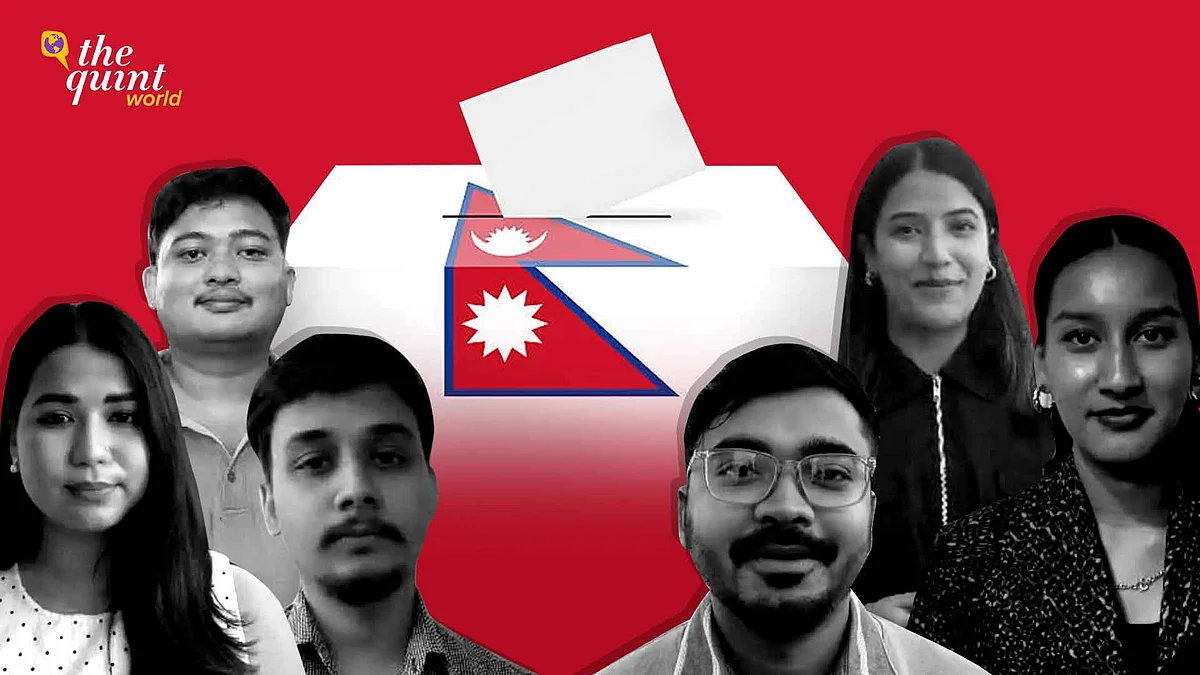Copyright yen

"Bury me with my Tesla Model X." The salon fell silent. The air smelled of hair spray and money. I held the will in one hand, my legal tone steady as I read the line aloud. A few women gasped. Across the marble floor, Mary Wellington clutched her Bible so tightly that her knuckles whitened. Her co-wife, Elizabeth, tilted her sunglasses and smirked. "Bury him with what? In Ikoyi? Please." The staff exchanged nervous glances. I cleared my throat. "These are the written wishes of the late Mr James Wellington." Elizabeth rose from her seat. The gold bangles on her wrist chimed. "You're not serious, Barrister. That car belongs to my children. He bought it after we married." Mary whispered, "Let his words be honoured. He made a vow." Elizabeth's voice cracked through the salon like glass breaking. "Vow? He left me to nurse him while you prayed! Now he wants to take a car to heaven?" The driver, Paul, who had been polishing the Tesla outside, froze mid-motion. He looked through the tinted glass, unsure whether to leave or listen. "Please," I said, "let me finish reading." Elizabeth folded her arms. "No, continue. Let's see what other nonsense your master wrote." Her words stung the air. I continued. The next clause tightened the tension in the room: Mr Wellington had directed that the remainder of his estate be divided equally between the two wives and a list of orphanages in Ogun and Cross River. The mention of charity drew gasps. Elizabeth laughed, sharp and disbelieving. "So strangers get our money?" Mary bowed her head. "May his soul find peace." The moment felt like a test, but not just of inheritance, but of dignity. When I looked up from the paper, Elizabeth's eyes met mine, cold and calculating. I saw greed taking its shape. James Wellington had been a Lagos tycoon, a man whose name carried weight from Marina to Victoria Island. He built his wealth through logistics and real estate, starting from a single warehouse in Apapa. I met him a decade ago when he needed a barrister to settle a land dispute. He was firm but kind. Over time, I became both his lawyer and confidant. Mary, his first wife, had stood by him during the early years. She was quiet, devout, and content with the little she had. Their marriage produced one son, Emmanuel, now a medical student abroad. Elizabeth came later, younger and glamorous. She was once a model, now known for her boutique in Lekki and her taste for luxury. The city called her "the queen of mirrors" because everything about her glittered, but nothing reflected depth. When James fell ill at sixty-five, his two worlds collided under one roof. Mary moved back into the mansion to pray for his recovery. Elizabeth hired private nurses, sparing no expense. The tension between them could light up a generator. I visited often to update his legal documents. During one visit, he smiled weakly and said, "Henry, when I go, make sure my words stand. Even if they sound strange." He gestured toward the Tesla parked outside his window. "That car gave me freedom when my legs began to fail. I want it to follow me home. Not because of vanity, but because I earned every kilometre." I took his instructions seriously. He insisted on writing the line himself. Later, he whispered, "If they quarrel, remind them that peace is my true gift." Two weeks later, he died quietly in his sleep. At the funeral, Mary dressed in white and prayed loudly. Elizabeth appeared in black, with dark sunglasses, crying, though her eyes stayed dry. Guests whispered about who would inherit what. When they scheduled the will reading at Elizabeth's salon, I sensed trouble brewing. I arrived with extra copies, a witness, and a steady voice. What I didn't realise was that the line about the Tesla would spark a battle that would pull in faith, pride, and even the driver. The tension began even before I arrived that morning. Paul called me from outside the salon. "Sir, Madam Elizabeth says she will not sit next to Madam Mary. She says the salon is hers, and she is the legal wife." "Both will sit," I said. "By the law, they share equal recognition." When I entered, Elizabeth was already pacing. "Barrister, we should do this at the house, not in public." "Your salon is neutral ground," I replied. "Let's begin." Mary arrived a few minutes later, holding a small bottle of anointing oil. She greeted everyone softly, then sat down and whispered a prayer. Elizabeth rolled her eyes. "Praying won't give you the car." Mary ignored her. I opened the will and started reading from the top. When I reached the Tesla clause, the room erupted in chaos. Elizabeth laughed loudly. "This is madness! My husband loved that car. Why waste it underground?" Mary's lips trembled. "He made a wish. We must obey." Elizabeth snapped, "You call this obedience? This is witchcraft from jealous people!" Paul, still outside, looked uneasy. He later told me he had overheard Elizabeth instructing one of her cousins to "move the car tonight, before that pastor's wife claims it." I paused my reading. "Madam Elizabeth, no asset can be touched until probate concludes. Please respect that." She smirked. "Probate or propaganda, that car is mine." Mary shook her head. "The earth is not our home. Let him rest as he wished." Elizabeth clapped her hands once. "Over my dead body!" The staff exchanged nervous glances. I could feel the heat in the room rise like mid-afternoon sun. I decided to read the subsequent clause to cool the air. That was when the room froze again. "To the orphanages of St Mary's Home in Ogun State and Mercy Centre in Calabar, I leave forty per cent of my remaining assets." The silence was instant. Elizabeth's mouth opened, but no sound came. "Forty per cent?" she finally said. "So, we get the scraps?" "Those were his words," I said quietly. Mary's eyes welled with tears. "He never forgot the children." Elizabeth pointed at me. "You and that pastor's wife planned this! Even the dead cannot rest in peace because of you people." "Enough," I said firmly. "The law will decide. My duty is only to read." But she wasn't done. "We'll see about that, Barrister. No one buries my husband's car. I'll call the commissioner if I have to." As I packed the documents, I noticed Paul standing by the window, uneasy. Later that night, he would tell me what he saw Elizabeth doing near the garage after everyone left. The story was far from over. Paul arrived at my office the next morning with trembling hands. "Sir, I couldn't sleep," he said. "Madam Elizabeth brought men last night. They tried to start the Tesla. She told them to move it to her brother's house in Surulere." I clenched my jaw. "Did they succeed?" "No, sir. The car wouldn't start. I think the battery died." "Did she see you?" "Yes. She told me, 'If you open your mouth, I'll make sure you join your boss underground.'" I thanked him and called the estate police liaison. Within hours, they sent a patrol to the Wellington mansion. The Tesla sat untouched, its sensors blinking like eyes that had seen too much. Later that week, the probate hearing began. Elizabeth stormed into court with her lawyer, declaring that the will was fraudulent and that someone had manipulated her late husband. But when Paul took the stand, his testimony changed everything. He revealed that during Mr Wellington's illness, Elizabeth had repeatedly pressured him to transfer property documents. She had even forged the old man's signature on a cheque for ₦3 million. The courtroom gasped. When shown the car key, Paul said quietly, "He told me the Tesla was a symbol. He said, 'Whoever tries to take it will expose their heart.'" The judge leaned back, noting those words. By the second hearing, new evidence surfaced: CCTV footage from the mansion showing Elizabeth sneaking into the garage after midnight. Her case collapsed. Mary sat silently beside me, tears streaming down her face. The court upheld the will in full. Outside the court, reporters gathered like bees. Elizabeth pushed through them, shouting that someone had framed her. Mary whispered beside me, "The Lord fights for the silent." The next morning, the papers carried the headline: "Second Wife Loses Bid to Seize Late Tycoon's Car and Charity Funds." For once, the truth outran the lies. Weeks passed, and the estate settled into order. The Tesla, as per instructions, was buried beside the mausoleum on the family property. It was surreal watching a machine lowered like a coffin. Elizabeth refused to attend the burial and left the mansion soon after. Her boutique closed when debt overwhelmed it. Rumours said she fled to Dubai. Mary stayed behind to oversee the charity disbursements. She worked closely with the orphanage directors, ensuring every naira reached its destination. Her grace turned public ridicule into respect. One evening, she called me to the mansion. The air smelled of rain and earth. "Barrister Henry," she said softly, "I used to envy her. But now I pity her. The car she wanted became her chain." She continued, "When he said 'bury me with my Tesla', I thought it was pride. Now I see it was a prophecy. He wanted to teach us that nothing we own leaves this world with us." The headlights of the buried Tesla still faintly glowed through the soil, powered by its last reserve charge. It was eerie, like a candle refusing to die. "Do you think she'll ever apologise?" I asked. Mary smiled sadly. "Pride and peace cannot live in the same house." By the next month, the foundation named after James Wellington began operations. It funded school uniforms, medical bills, and small grants for widows. Paul became the foundation driver, finally treated with the dignity he had long earned. One Sunday, I found him cleaning the new Toyota Hilux. He grinned. "Sir, this one, no one will bury." We laughed. Mary's health began to fade, but her peace grew stronger. On her final visit to my office, she handed me a letter sealed with wax. "Read this when I am gone," she said. Months later, I did. It said: 'Thank you for defending truth when others chose sides. Remind them that honour is not noise; it is obedience in hard moments.' Looking back, I realise the line "Bury me with my Tesla" was never about wealth. It was a mirror held up to human desire. When James wrote those words, he was not clinging to possessions but exposing hearts. He knew the living would fight harder for the symbols of power than for peace itself. Elizabeth saw a car. Mary saw obedience. The world saw madness. But I saw wisdom disguised as folly. In Lagos, people measure love by what they inherit, not what they preserve. Yet the true inheritance is character. The case taught me that greed often sounds like entitlement wrapped in grief. It shouts, while integrity speaks in whispers. Mary's quiet faith triumphed because it aligned with purpose. Elizabeth's downfall came from mistaking glamour for grace. Each time I pass the Wellington property and see the small plaque that reads "Buried with His Freedom", I remember that the worth of a legacy is not in what lies above the ground but what remains in the heart. As for me, I now tell my clients: "Write your will as a lesson, not just a list." Because someday, when greed rises again in another salon or boardroom, someone will read a line that tests not the law but the soul. So I ask you, reader: if your words outlive you, will they expose greed or inspire grace? This story is inspired by the real experiences of our readers. We believe that every story carries a lesson that can bring light to others. To protect everyone's privacy, our editors may change names, locations, and certain details while keeping the heart of the story true. Images are for illustration only. If you'd like to share your own experience, please contact us via email. Source: YEN.com.gh



